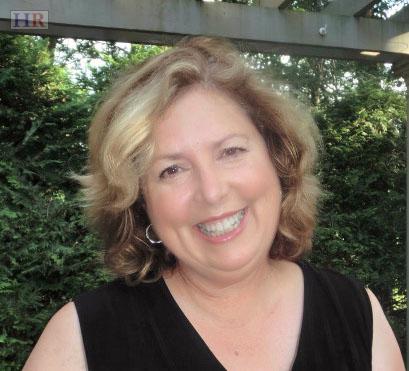What You Need to Know About College Admissions: Demonstrated Interest
 “Demonstrated Interest” It’s the latest buzz phrase among college admissions people. Do you know what it means? David Hawkins, Director of Public Policy and Research for the National Association of College Admissions Counselors explains, “Demonstrated interest is how likely a student is to enroll at a particular institution.” Why is that important to schools? Well, higher education wants to know that if they offer an acceptance to you that you will most likely attend their college. It’s all about acceptance rates and yield rates. Schools have a tough time predicting if an applicant will attend so they may track your past experiences with their school.
“Demonstrated Interest” It’s the latest buzz phrase among college admissions people. Do you know what it means? David Hawkins, Director of Public Policy and Research for the National Association of College Admissions Counselors explains, “Demonstrated interest is how likely a student is to enroll at a particular institution.” Why is that important to schools? Well, higher education wants to know that if they offer an acceptance to you that you will most likely attend their college. It’s all about acceptance rates and yield rates. Schools have a tough time predicting if an applicant will attend so they may track your past experiences with their school.
High school juniors and sophomores just beginning the college search should understand what “demonstrated interest” means and exhibit these behaviors to the colleges/universities you may be interested in attending. So let’s break it down a bit more. What can you do to show “demonstrated interest” to the schools you are interested in? Here are some ideas;
1.

S Start with getting on their mailing list. Sign up on their website, at a college fair or on their Facebook page.
2. Visit the college. This is a no-brainer since you should get a feel for the school in any case to see if it is a good fit for you. But make sure you do it officially. Sign up through the college’s admissions office for an information session and a tour. If you simply “drop by” the campus (that is, you don’t have an appointment scheduled), at least stop in the admissions office and fill out an information card, pick up materials, etc. Let them know you made the effort.
3. Do the social media thing. Like their Facebook page, read blogs, connect with admissions’ Twitter accounts. And interact with these sites, i.e. ask questions, retweet, comment, etc.
4. Schools that are some distance from where you live often have regional representatives in your area. Find out who they are and connect with them. They typically run small information sessions, conduct interviews, visit high schools and attend college fairs.
5. Have an interview. Some schools involve alumni for interviews, while others have regional reps, offer Skype interviews or offer interviews on campus. This is an opportunity to tell them how much you really like the school, why this is your top-choice school, why the school is a good fit for you.
6. If you are interested in a certain major, contact the department and ask about internship opportunities, where graduates are employed, or specific areas of research for their professors. If the professor is impressed, he or she will most likely let the admissions office know. Similarly, if there is a particular activity that interests you, be in touch with the person in charge: tennis coach, chess club president, music department, radio station, etc. They key is to make connections within the college community.
7. Continue to follow up once you have applied. Let them know if you’ve made the honor roll, received an award, performed the lead role in the school play, and so on since you submitted your application. Demonstrated interest should continue as you await their decision.
Not all colleges are tracking demonstrated interest. Some will tell you straight out that they do track; others won’t. Either way, that’s okay. You may have completed some or all of the above suggestions to show interest but you will be the one who benefits. You’ve made contacts on campus, learned about programs and opportunities, met with faculty, students and admissions people—all the better to make an informed decision. After all, you’ll be spending the next four years of your life at the school you finally choose.
Joanne Clary Apesos is the owner of College Pursuits, a college counseling business in Holliston. She has advised high school students and their families in planning of their college experience for many years and has presented HEF workshops for students and parents about the college selection process. Prior to assisting high school students she worked in higher education for 20+ years as an admissions counselor, adjunct faculty and director of student activities at both public and private colleges and universities in the Northeast. She holds a master’s degree in Higher Education from Columbia University and is currently enrolled in UCLA’s College Counseling Certificate Program.
This is definitely something I'd like to see on a regular basis as well. It's really the inside scoop I'm looking for, as a mother of three. Sometimes you can read all the books in the world on college admissions, but there's nothing like hearing it from an expert, and especially an expert in holliston who has done this before. Thank you Joanne!
Kerry Williams | 2014-02-01 15:36:20
I'm glad to see this central concern addressed in HR. This is a time when families are under a lot of pressure, and the mystery of college acceptance needs to be broken down into manageable bites. I coach standardized tests and college essays, two more pieces in the complex college application process., and I see a familiar landscape. Teachers and guidance counselors have large numbers of very diverse students, and multiple competing goals. Parents worry that their child is being judged as data on a page. Students fear that the college they go to is going to define the rest of their lives. Just as parents begin to resist losing control, students begin to practice independence. These "high stakes" years take their toll on everyone. I've seen that having someone experienced, someone who can know student personally, who is familiar with the schools and who knows the local environment - this is a good way to take the pressure off. Over the years I've seen a group of professionals in town who collaborate to find the right support for any families who request it. You may know who they are; word of mouth is the usual marketing strategy. Most will consider payment plans, hoping to give access to all. I wrote this comment because it's good to see this article here, and I hope HR will make this a regular feature! I would like to recommend, to parents of high school and early college students, a great book for coping: Letting Go: A Parents' Guide to Understanding the College Years, by Karen Levin Coburn, Madge Lawrence Treeger. Coffee Haven often stocks it, and can order it for you.
Susan | 2014-02-01 08:55:30